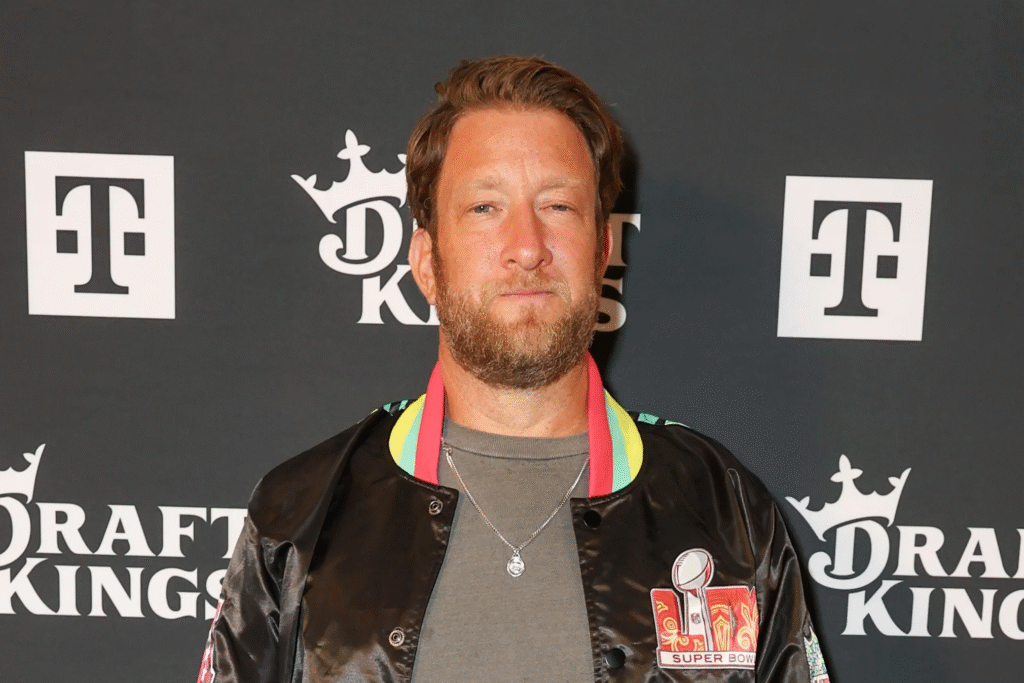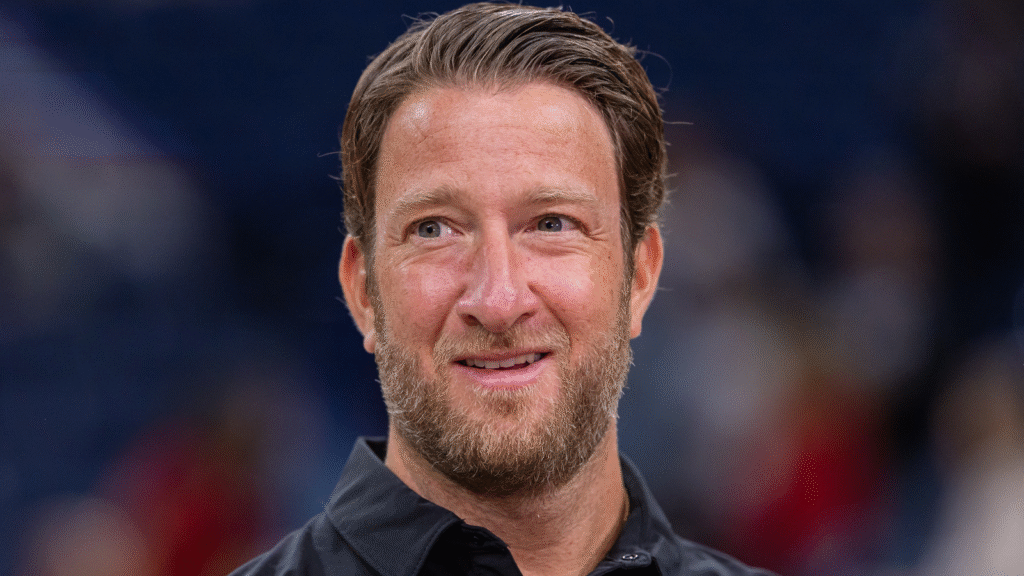
The recent antisemitic incident at Barstool Sports’ Philadelphia bar, where a sign reading “F**k the Jews” was displayed during a bottle service presentation, sparked outrage both online and in the wider community. What followed, however, was an unexpected and nuanced response from Barstool’s founder, Dave Portnoy. While many would have taken a punitive approach, Portnoy chose instead to transform the incident into an opportunity for education and understanding. This decision, met with both praise and scrutiny, highlights the complexities of dealing with hate speech and antisemitism in the modern world.
The Incident: A Disturbing Display of Antisemitism
On the night of the incident, two Barstool Sports employees, both waitresses, were involved in a deeply disturbing act at the bar. During a bottle service presentation, one of the staff members held up a sign reading “F**k the Jews,” which was met with laughter from some patrons but was quickly noticed by others. The sign, which many considered to be blatantly antisemitic, was shared widely on social media platforms, resulting in widespread condemnation.
The immediate fallout was intense, with many calling for the employees to be fired and for Barstool to take swift and decisive action. People were not only angered by the hateful message but were also concerned about the environment it fostered in a Barstool-run establishment. For many, this incident felt like a direct contradiction of the inclusivity and respect that should be expected in any public space, particularly one as high-profile as a Barstool establishment.
This incident, unfortunately, wasn’t the first instance of antisemitism in public spaces or businesses, but it did stand out due to the visibility of the Barstool brand and its prominent figurehead, Dave Portnoy. The public quickly took to social media to voice their dismay and demand immediate consequences, urging Barstool to take responsibility for its employees’ actions and send a clear message against hate speech.
Dave Portnoy’s Initial Reaction: Outrage and Accountability
Upon learning about the incident, Dave Portnoy, known for his no-nonsense and direct approach to controversy, immediately took to social media to express his disgust and outrage. He released an impromptu Instagram video, addressing his followers with a stern message.
Portnoy made it clear that the actions of the employees were completely unacceptable and that they did not reflect Barstool’s core values. He condemned the display of antisemitism, calling it “disgusting,” and promised to handle the situation swiftly. In the video, he shared that he had already fired the two individuals involved and announced that one of the employees had been placed on interim suspension by their university, Temple University.
For Portnoy, this was not just a matter of business—it was a matter of personal principle. “You don’t get to do that,” Portnoy said, visibly shaking with emotion. “There’s no world where that is acceptable. None. And those responsible will face consequences.”
His swift action in firing the employees demonstrated that he was taking the issue seriously. However, it soon became clear that Portnoy wasn’t only concerned with punishing the individuals involved—he also wanted to understand how such an incident could occur in the first place.
Shifting Focus: Education Over Punishment
After the initial outcry, Portnoy took some time to reconsider the broader implications of the incident. He began to reflect on the idea that simply firing the individuals involved and ending the matter through punishment would not fully address the problem at hand. This is when he made a surprising decision: rather than solely focusing on punitive measures, he would give the employees involved an opportunity to learn and grow from their mistakes.
Portnoy announced that he would be sending the two women involved in the incident to Auschwitz, the infamous former Nazi concentration camp in Poland, for an educational tour. He explained that the trip would serve as an opportunity for the employees to understand the gravity of their actions and learn firsthand about the horrors of the Holocaust.
“I don’t want to destroy their lives,” Portnoy said. “They’re young, they’re ignorant, and they’re drunk. But that doesn’t mean they should be destroyed. I want them to understand why what they did was wrong, not just for the moment, but for the rest of their lives.”
This decision to prioritize education over punishment was a radical departure from what many had expected. Portnoy acknowledged that the two waitresses had made an unthinkable mistake, but he also recognized that they had the potential to change and learn from their actions. Instead of severing ties with them permanently, Portnoy sought to help them grow into better individuals.
Portnoy was not alone in his support for this decision. Robert Kraft, the owner of the New England Patriots and a longtime advocate for Jewish causes, publicly endorsed Portnoy’s approach. Kraft, who has been involved in several initiatives to fight antisemitism, explained that education was the key to combating hatred and ignorance.
“You can’t fix ignorance with just punishment,” Kraft said. “We need to help people understand the pain that words like this cause. Dave’s decision to send these young women to Auschwitz shows a commitment to turning this tragedy into a learning experience.”

Social Media’s Role: Amplification and Accountability
The role of social media in amplifying the incident cannot be understated. The viral spread of the photo of the antisemitic sign resulted in widespread anger and calls for accountability. Social media platforms, which have become powerful tools for public discourse, allowed people from all walks of life to voice their outrage and demand action.
While this kind of amplification can be important for holding individuals and companies accountable, it can also lead to hasty judgments and responses. In this case, Portnoy’s quick condemnation of the incident was met with both praise and criticism, but his decision to take a step back and focus on education demonstrated a level of restraint and thoughtfulness that is not always present in today’s outrage-driven culture.
Portnoy’s willingness to confront the situation head-on, rather than hide from it or make excuses, was another aspect of his leadership that resonated with many. The ability to take ownership of a mistake and use it as a stepping stone for improvement is a trait not always seen in the public eye, but it is one that Portnoy has consistently demonstrated throughout his career.
A Teach Moment: Addressing the Root Causes of Hate
The decision to send the two women involved to Auschwitz has sparked a broader conversation about the importance of educating the next generation about the dangers of hate speech and antisemitism. While the rise of social media has brought about many positive changes, it has also created a breeding ground for misinformation, hate, and division. Young people, in particular, are often exposed to harmful ideologies that can shape their worldviews in dangerous ways.
By choosing to educate rather than punish, Portnoy is sending a message that accountability does not have to mean destruction. Rather, it can be an opportunity to teach and foster understanding. This philosophy, if adopted by more leaders in positions of power, could be a game-changer in the fight against hate and intolerance.
Portnoy’s commitment to education reflects a growing recognition that many people—especially young people—don’t always fully understand the weight of their words and actions. Education, therefore, becomes a critical tool in preventing future incidents and fostering a more informed, empathetic generation.
The Role of Barstool Sports in Corporate Responsibility
Portnoy’s handling of the incident has implications beyond just the individuals involved—it also affects the reputation of Barstool Sports as a whole. Barstool is a brand known for its edgy, no-holds-barred approach to entertainment, but the antisemitic incident raised questions about the company’s commitment to diversity and inclusion. Portnoy’s decision to take swift action, followed by his decision to focus on education, was an attempt to show that Barstool Sports does not tolerate hate in any form.
Barstool Sports, like many companies, operates in an era where corporate responsibility is under increased scrutiny. Consumers today are increasingly aware of the values and actions of the companies they support. Barstool’s handling of this incident may help to repair any damage to its reputation and set an example for other businesses in how to address similar issues with transparency, empathy, and a focus on growth.
Portnoy’s actions have drawn attention to how businesses must take responsibility for the actions of their employees and address issues of intolerance head-on. Barstool’s reputation may have taken a hit, but Portnoy’s focus on reconciliation and understanding has proven to be an opportunity for growth.
Public Reaction: Mixed Views, But a Call for Accountability
Since Portnoy’s announcement of his plans for education, the response from the public has been largely supportive. Many have praised his decision to send the two women involved to Auschwitz as a courageous and forward-thinking choice. Social media users have noted that while the sign was undeniably offensive, the act of educating the individuals involved could prevent similar incidents in the future.
However, there have been those who believe that Portnoy should have taken more drastic measures, including public shaming or banning the women from any future employment opportunities. The tension between punishment and education is a delicate one, and not everyone agrees on the best course of action.
Despite the mixed opinions, it is clear that Portnoy’s handling of the situation is fostering a broader dialogue about how society deals with hate speech and antisemitism. His actions have drawn attention to the importance of addressing ignorance with compassion and education, rather than simply resorting to punitive measures.
Moving Forward: A Model for Accountability
Dave Portnoy’s decision to handle the antisemitic incident at Barstool Sports with a focus on education over punishment has set an important precedent. It highlights the importance of confronting hate head-on while also fostering an environment where growth, learning, and understanding can take place.
While it is still too early to assess the full impact of Portnoy’s decision, one thing is clear: he has opened up a conversation about accountability, compassion, and the power of education in combating hate. As society continues to grapple with issues of intolerance and discrimination, Portnoy’s actions may serve as a model for how to handle difficult situations with thoughtfulness and integrity.
In conclusion, Dave Portnoy’s response to the antisemitic incident at Barstool Sports bar has not only reaffirmed his commitment to justice but has also provided an opportunity to educate and promote understanding. His decision to turn this moment of crisis into one of education, rather than retribution, has set a powerful example for others to follow.

